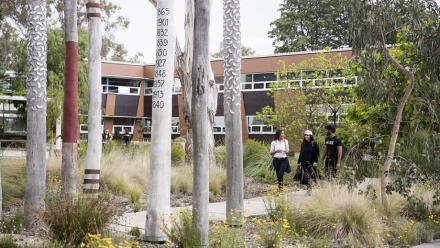Plant-based vaccines for COVID-19 closer with ANU help
An Australian plant may hold the key to rapidly producing vaccines for Ebola, COVID-19, influenza and other viruses as Australian National University researchers collaborate with Canadian biopharmaceutical company Medicago Inc. to establish ways to maximise efficient production.
The project is a collaboration between Medicago and scientists from the ANU-node of the Australian Plan Phenomics Facility (APPF) and College of Engineering and Computer Science (CECS). Support is being provided by the Centre for Entrepreneurial Agri-Technology (CEAT) - a collaboration between ANU & CSIRO that is supported by investment from the ACT Government.
The researchers are working with Medicago Inc. on refining the company's plant-based vaccine technology.
Medicago has already succeeded in using proprietary technology to 'trick' Australian native species Nicotiana benthamiana into producing virus-like particles (VLPs) that can be harvested and purified to create vaccines.
Now, in its work with ANU scientists, the company is seeking to understand more about the control factors that regulate VLP production within individual plants.
Central to that work has been developing a way of non-invasively examining plants to identify the control factors.
The ANU team are applying machine-learning approaches-much like facial recognition technology-so that they can produce maps of a plant's canopy and apply that mapping continuously through the plant's growth.
Concurrently, the team are developing light reflectance models that will allow them to examine the chemical composition of tissues of a growing plant.
Ultimately, the data they collect and the tools and models they develop will help provide predictors for plant growth, health and factors contributing to VLP production.
The work will help diversify global capability to produce vaccines in abundance, and with a production lifecycle that is currently less than a month, it has potential to speed up vaccine provision.
Medicago was attracted to ANU's world-leading capabilities in plant and data science and the university's approach to cross-disciplinary work and engagement with industry.
To connect with CEAT or the ANU researchers, contact kathryn.vukovljak@anu.edu.au.


